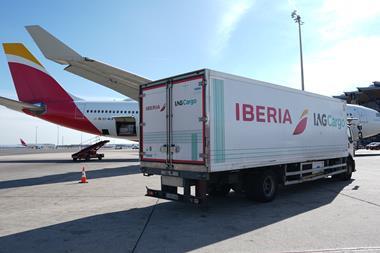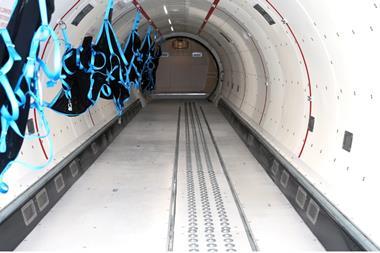Panalpina handled 995,900 tons of airfreight in 2017, the highest in the company’s history.
The global supply chain services provider gave the figure in its second Integrated Management Report, summarising the company’s activities during 2017 in terms of business performance and sustainability.
Plus, both profitability and earnings before interest and taxation (EBIT) in the airfreight segment improved quarter on quarter.
Airfreight-related highlights of the 2017 report included:
- Panalpina piloted its new, fully automated online quotation and booking platform for ad hoc cargo with selected airfreight customers. This new centralised digital platform will provide customers with a fast, simple and reliable online interface that enables informed decision-making by giving access to easy and instantaneous quotation and booking of ad hoc shipments globally.
- Panalpina launched its global Perishables Network with a focus on 15 key countries and an ambitious plan to double that number by 2020. The network expanded through acquisitions of four companies specialising in perishables logistics – Air Connection in Kenya, Interfresh in the Netherlands, Cool Chain Group in Germany, and Adelantex and AD Handling in Belgium – strengthening Panalpina’s ability to offer complete, end-to-end solutions for customers in both origin and destination countries.
Growth in volumes was supported by high investment in IT. For example, Panalpina rolled out a new transportation management system – SAP TM – for airfreight as well as ocean freight in Germany, demonstrating that it could be implemented successfully in a large country and that it improves processes and data quality.
This new system is expected by Panalpina to facilitate it becoming a “cost leader in our industry”, while giving it the flexibility to adapt to changes in the marketplace more quickly.
It will also help to make the company fit for making further acquisitions by enabling it to integrate other companies more easily.
Operational and financial performance were obviously affected by the market in which Panalpina operated during the year. In relation to airfreight, the widening gap between capacity supply and demand impacted rate levels and increased the rate volatility to levels not seen before, the company said.
The e-commerce boom intensified this situation, as customers took steps to shorten their supply chains and increase speed to market.
According to president and chief executive Stefan Karlen: “Panalpina recognised these trends early and worked with airfreight customers and carriers to secure capacity.”
As a result, the company’s airfreight business enjoyed record volumes and profitability in 2017.










